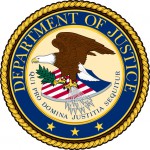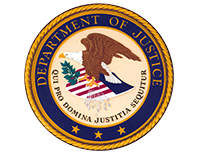U.S. Attorney Gregory J. Haanstad Alerts Public to Charity Scams in Wake of Hurricane Helene
Gregory J. Haanstad, United States Attorney for the Eastern District of Wisconsin, issued a public safety alert on October 7, 2024 advising the public to be vigilant to hurricane relief fraud in the wake of Hurricane Helene.
“When natural disasters strike, Americans are often are at their best, seeking to help their neighbors and fellow citizens in any way possible,” said United States Attorney Greg Haanstad. “However, these disasters also provide an opportunity for scam artists to take advantage of this compassion and generosity. Although the Eastern District of Wisconsin was not directly impacted by Hurricane Helene, residents of Wisconsin have shown themselves to be among the most thoughtful and caring in the country, often seeking to donate money to relief efforts. To help ensure that these donations reach their intended goal and do not get diverted to those who seek only to enrich themselves, I ask residents of the Eastern District to be mindful as they consider participating in solicited or unsolicited donation requests.”
The public should exercise diligence before giving contributions to anyone soliciting donations or individuals offering to assist those affected by Hurricane Helene. Solicitations can originate from phone calls, texts, social media, e-mail, door-to-door collections, flyers, mailings, and other similar methods.
Before making a donation to benefit victims of Hurricane Helene, individuals should adhere to certain guidelines, including:
- Make contributions directly to known organizations rather than relying on others to make the donation on your behalf.
- Do not be pressured into making contributions as reputable charities do not use such tactics.
- Do not respond to any unsolicited communications (e.g., e-mails and texts), and never click links contained within those messages because they may be targeting your personal information, to include bank and credit card account information, and other identifiers such as dates of birth and social security numbers.
- Rather than clicking on a purported link to a charity, verify its legitimacy by utilizing various Internet-based resources that may assist in confirming whether the organization is a valid charity.
- Beware of organizations with copy-cat names similar to but not exactly the same as those of reputable charities.
- Avoid cash donations if possible. Pay by credit card or write a check directly to the charity. Do not make checks payable to individuals.
- Know that legitimate charities do not normally solicit donations via money transfer services, and their website will normally end in .org rather than .com.
- Be cautious of e-mails that claim to show pictures of the disaster areas in attached files because the files may contain viruses. Only open attachments from known senders.
The U.S. Department of Justice established the National Center for Disaster Fraud (NCDF) in the wake of Hurricane Katrina to deter, investigate, and prosecute fraud in the wake of disasters. More than 50 federal, state, and local agencies participate in the NCDF, which reminds the public to be aware of and report any instances of alleged fraudulent activity related to relief operations and funding for victims. Complaints of fraud may be reported online at www.justice.gov/DisasterComplaintForm.
Complaints may also be reported to the NCDF at (866) 720-5721, a hotline that is staffed 24 hours a day, 7 days a week.
NOTE: This press release was submitted to Urban Milwaukee and was not written by an Urban Milwaukee writer. While it is believed to be reliable, Urban Milwaukee does not guarantee its accuracy or completeness.


















